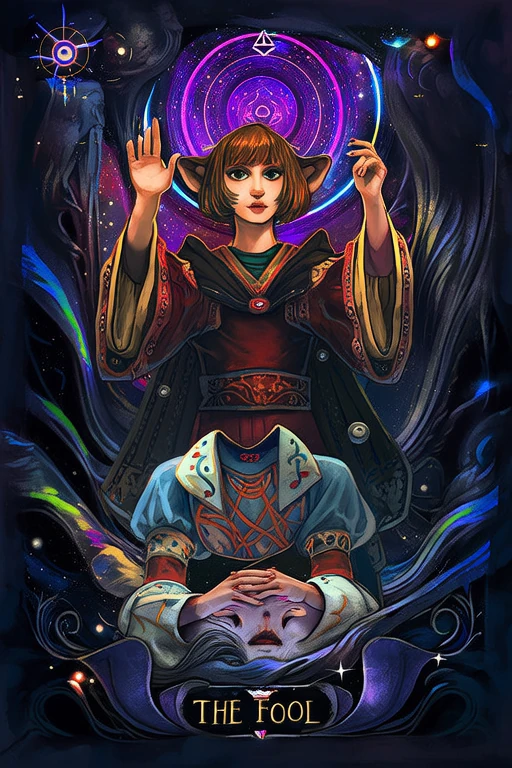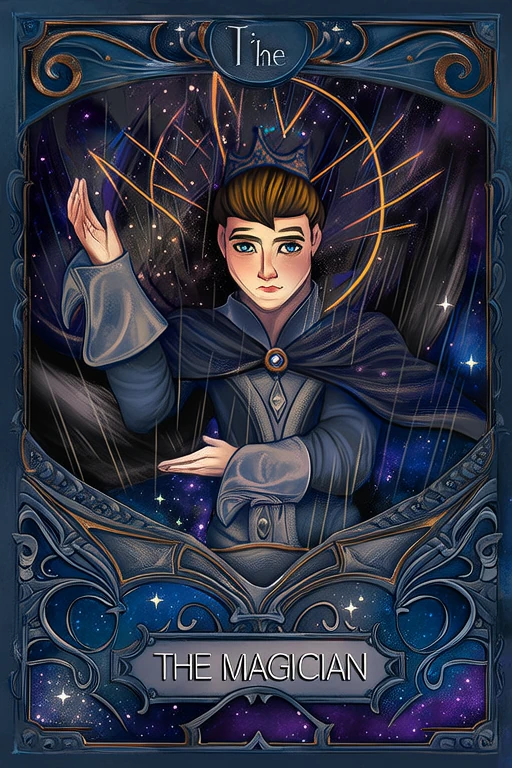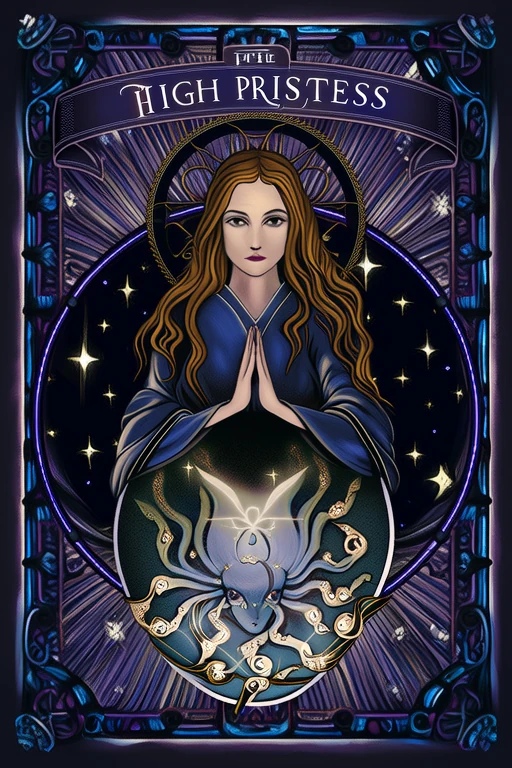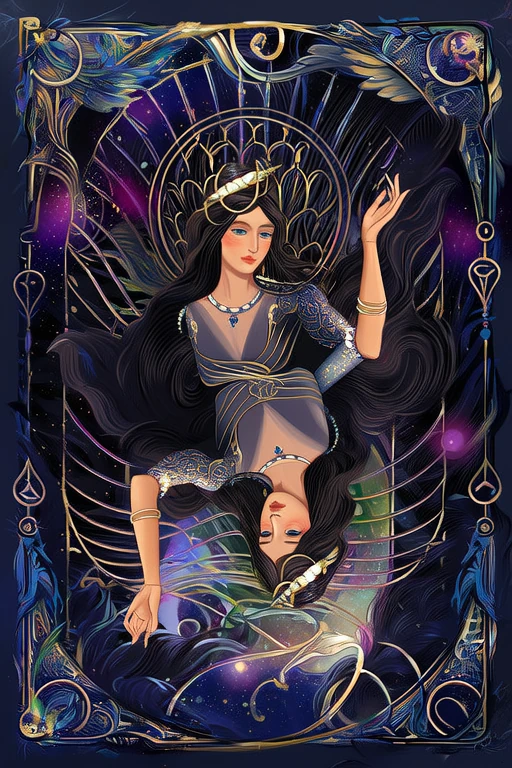
The Emperor
Discover the deep meaning of The Emperor with our free AI-powered tarot interpretation. Get instant, accurate readings based on advanced tarot knowledge.
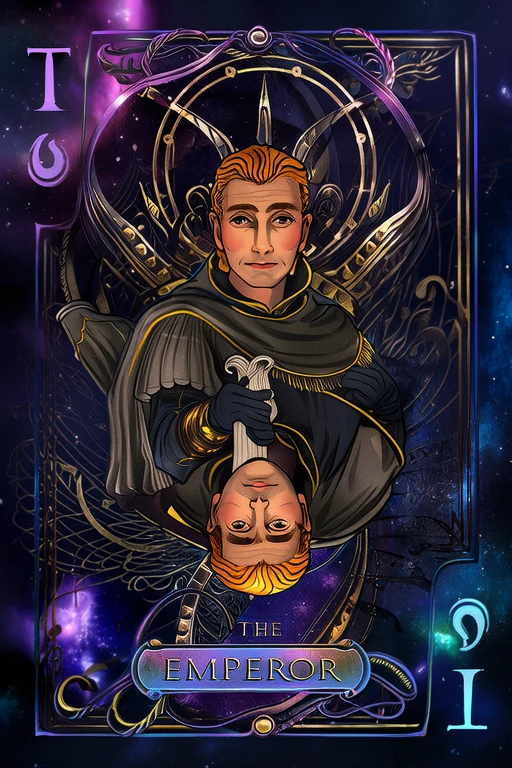
Keywords
Upright Meaning
Authority, structure, control, fatherhood, stability
Reversed Meaning
Domination, excessive control, rigidity, inflexibility
Full Interpretation
The Emperor represents authority, structure, and the power of masculine energy.
In-Depth Analysis
📜 Historical Background
The Emperor, the fourth card in the Major Arcana of the Tarot deck, holds a commanding presence and symbolizes authority, structure, and control. Its origins trace back to early 15th-century Europe, particularly in Italy and France, where tarot was initially used not for divination but as a card game called 'tarocchi' or 'tarot.' The Emperor, like other Major Arcana cards, was part of the allegorical imagery that reflected medieval and Renaissance ideals of governance, power, and the divine right of kings.
In the earliest known tarot decks, such as the Visconti-Sforza deck created around the 1440s in Milan, The Emperor is depicted as a regal figure seated on a throne, often holding a globe and scepter—symbols of worldly dominion. These early depictions were heavily influenced by Christian iconography and classical mythology, drawing parallels between earthly rulers and divine authority. The Emperor was often associated with figures like Zeus or Jupiter in Roman and Greek mythology—gods of sky and thunder, representing strength, justice, and leadership.
Over time, as tarot evolved from a game to a tool for esoteric and mystical practices in the 18th and 19th centuries, The Emperor took on deeper symbolic meanings. The Hermetic Order of the Golden Dawn and later occultists like A.E. Waite and Pamela Colman Smith (creator of the Rider-Waite-Smith deck) reinterpreted the card to reflect not only political authority but also internal mastery, discipline, and the structured aspects of the psyche.
The imagery of The Emperor has evolved significantly across different tarot decks. In traditional decks like the Marseille Tarot, he is portrayed as a stern, bearded man in armor, sitting on a stone throne adorned with rams’ heads—symbols of Aries and Mars, the astrological and planetary correspondences of the card. In contrast, modern decks like the Thoth Tarot by Aleister Crowley present a more abstract and esoteric interpretation, emphasizing the Emperor’s connection to cosmic law and willpower.
Culturally, The Emperor has been interpreted in various ways. In some Eastern traditions, the card resonates with Confucian ideals of order and hierarchy, while in Western psychological interpretations, it aligns with the archetype of the Father or the Sovereign. Across cultures, The Emperor represents the principle of authority—not just external but also internal, symbolizing the need for self-discipline, control, and rational thought in navigating life’s challenges.
Symbolism & Imagery
The Emperor is rich in symbolism, each element of its imagery contributing to a layered and multifaceted meaning. At the center of the card is a powerful, mature male figure seated on a throne, often depicted with a stern expression and a commanding posture. He typically wears a crown or helmet, symbolizing authority and sovereignty. His armor reflects protection and preparedness, while the scepter he holds in one hand represents power and dominion. In many decks, he also holds an orb or globe, signifying control over the material world and the ability to impose order on chaos.
The throne itself is often made of stone or adorned with ram’s heads, linking the card to the astrological sign Aries and the planet Mars. This connection emphasizes the Emperor’s association with assertiveness, action, and leadership. The background of the card is usually barren or mountainous, symbolizing the harsh realities of power and the isolation that often accompanies leadership. Beneath his throne lie four rams or rams’ heads, further reinforcing the themes of ambition, drive, and the fiery energy of Aries.
Colors play a significant role in the symbolic language of The Emperor. Red and black are common color schemes, representing passion, power, and the shadow aspects of control and rigidity. Gold accents symbolize wisdom, wealth, and spiritual authority. The number four, associated with the card (as it is the fourth Major Arcana), signifies stability, structure, and the material world—reflected in the four elements, four seasons, and four cardinal directions.
Interpretively, The Emperor represents both the positive and negative aspects of authority. In its upright position, it signifies leadership, control, discipline, and the ability to take charge of situations. Reversed, it can indicate authoritarianism, domination, or the abuse of power. It may also suggest a lack of structure or a failure to assert oneself when necessary.
In the context of the entire tarot deck, The Emperor follows The Empress, symbolizing the balance between masculine and feminine energies. While The Empress embodies nurturing and abundance, The Emperor brings structure, logic, and protection. Together, they represent the union of opposites necessary for creation and governance. The Emperor also connects with Strength and Justice, reinforcing the themes of control, willpower, and moral authority.
Across cultures, interpretations of The Emperor vary. In Western esoteric traditions, he is often seen as the embodiment of the Father archetype, while in Eastern philosophies, he may be likened to the concept of the wise ruler or sage. In psychological readings, he represents the conscious mind’s ability to impose order and structure on the unconscious. Whether viewed as a guide to leadership or a caution against tyranny, The Emperor remains one of the most potent and symbolically rich cards in the tarot.
Psychological Insights
From a psychological perspective, The Emperor is closely associated with Carl Jung’s concept of archetypes—universal symbols that reside in the collective unconscious. As the embodiment of the Father archetype, The Emperor represents authority, structure, and the protective aspect of the psyche. He symbolizes the inner voice that seeks control, order, and responsibility, often emerging in times when one must take charge of their life or make decisive choices. Jung believed that integrating such archetypes leads to individuation—the process of becoming one’s true self. Thus, The Emperor serves as a reminder to harness inner strength, discipline, and rational thought to navigate life’s complexities.
In modern life, The Emperor offers valuable insights into leadership, decision-making, and personal responsibility. Whether in business, relationships, or personal development, this card encourages individuals to take control of their circumstances with confidence and clarity. It advises against passivity and promotes assertiveness, especially when one feels overwhelmed or directionless. The Emperor also serves as a caution against authoritarianism and rigidity, urging a balance between control and compassion.
For personal growth and self-awareness, The Emperor prompts introspection about how one exercises authority—both over oneself and others. It invites individuals to examine their relationship with power, structure, and independence. Those who resonate with this card often find themselves in positions of leadership or are called to step up and assume responsibility. It can also indicate a need to establish boundaries, create order, or develop self-discipline to achieve long-term goals.
In therapeutic and counseling settings, The Emperor can be a powerful tool for clients struggling with issues of control, self-esteem, or leadership. It encourages clients to take ownership of their lives and make conscious, intentional decisions. Counselors may use this card to explore themes of authority figures, personal responsibility, and the need for structure. In shadow work, The Emperor can help individuals confront fears of inadequacy, insecurity, or the misuse of power.
Modern spiritual practices often incorporate The Emperor in meditations or rituals focused on grounding, protection, and manifestation. As a symbol of willpower and structure, it supports manifestation work by encouraging clarity, planning, and disciplined action. Many practitioners use this card in conjunction with crystals like garnet or tiger’s eye to enhance confidence and leadership qualities. Whether used in tarot readings, affirmations, or energy work, The Emperor serves as a reminder of the inner sovereign—the part of us that can lead with wisdom, strength, and integrity.
Correspondences
The Emperor is deeply connected to astrological, elemental, and numerological correspondences that enhance its symbolic depth and spiritual significance. Astrologically, The Emperor is ruled by Aries, the first sign of the zodiac, and is associated with the planet Mars. Aries embodies leadership, courage, and initiative, while Mars represents action, assertion, and primal energy. These influences contribute to The Emperor’s strong, assertive, and commanding presence, both in tarot readings and in personal development.
Elementally, The Emperor corresponds to Fire, the element of passion, willpower, and transformation. Fire fuels ambition and action, aligning with The Emperor’s themes of control, authority, and determination. This elemental connection makes The Emperor a dynamic and motivating force, especially when seeking to manifest goals or take decisive action.
Gemstones and crystals associated with The Emperor include garnet, which enhances strength and perseverance; tiger’s eye, known for grounding and protection; and hematite, which absorbs negativity and promotes self-confidence. These stones can be used in meditation or carried as talismans to align with The Emperor’s energy.
Herbs and essential oils linked to The Emperor include cayenne, which stimulates energy and courage; cinnamon, associated with power and protection; and frankincense, which enhances spiritual clarity and authority. These can be incorporated into rituals, anointing oils, or sachets to invoke The Emperor’s influence.
Seasonally, The Emperor resonates with the energy of spring—particularly the early part of the season when new growth emerges and the sun gains strength. This aligns with themes of leadership, initiation, and taking control of one’s destiny.
In terms of chakras, The Emperor is primarily connected to the Root Chakra, which governs stability, security, and physical vitality. Balancing this chakra enhances one’s ability to take grounded, decisive action. Additionally, it resonates with the Solar Plexus Chakra, which governs personal power, confidence, and will.
Numerologically, The Emperor is the fourth card in the Major Arcana, corresponding to the number four. This number symbolizes structure, foundation, and the material world. It reinforces the card’s themes of order, control, and the necessity of a strong foundation for long-term success.
❓ Frequently Asked Questions
Frequently asked questions about The Emperor revolve around its meaning in different contexts, how it interacts with other cards, and how to interpret it in both upright and reversed positions. One common question is, 'Does The Emperor always mean a male figure or authority?' The answer is no—while traditionally depicted as a male ruler, The Emperor represents the archetype of authority and leadership, which can manifest as a person of any gender or as an internal quality within the querent.
Beginners often misinterpret The Emperor as purely negative, especially in reversed positions. However, while it can indicate authoritarianism or rigidity, it also offers guidance on how to balance control with compassion. Clarifying this distinction is key to accurate interpretation.
Professional readers use various techniques when The Emperor appears in a spread. In a three-card reading, The Emperor may represent the challenge, lesson, or outcome related to authority or structure. In a Celtic Cross spread, it often indicates the influence of a powerful figure or the need for control in the situation. When combined with cards like The Empress, it suggests a balance of feminine and masculine energies. With The Tower, it may warn of a breakdown in authority or structure.
Interpreting The Emperor in different contexts requires attention to surrounding cards and the question being asked. In career readings, it suggests leadership opportunities or the need for strategic planning. In relationships, it may indicate the need for boundaries or a partner who provides stability. In personal growth readings, it encourages self-discipline and taking charge of one’s life.
Practical advice for working with The Emperor includes reflecting on how you exert control in your life, whether you need to take more initiative, or if you are being too rigid. Journaling prompts might include: 'What areas of my life require more structure?' or 'How can I lead with wisdom and compassion?' Meditating on The Emperor can help connect with inner strength and the ability to manifest goals through disciplined action. Whether used for guidance, reflection, or empowerment, The Emperor remains a powerful ally in navigating life’s challenges with clarity and authority.
Practical Readings
Love Reading – Free • Online • AI • Instant • Accurate
In love, The Emperor upright: Authority, structure, control, fatherhood, stability. Reversed: Domination, excessive control, rigidity, inflexibility.
Career Reading – Free • Online • AI • Instant • Accurate
For career, The Emperor upright: Authority, structure, control, fatherhood, stability. Reversed: Domination, excessive control, rigidity, inflexibility.
Yes‑No Reading – Free • Online • AI • Instant • Accurate
As a quick yes‑no: upright tends toward “yes”, reversed leans “no”—interpret within your question’s context.
FAQ
What does The Emperor mean in tarot?
The Emperor represents authority, structure, control, fatherhood, stability. This card encourages The Emperor represents authority, structure, and the power of masculine energy.
What is The Emperor reversed meaning?
When The Emperor appears reversed, it signifies domination, excessive control, rigidity, inflexibility. Consider areas that may require adjustment or release.
Is The Emperor a positive card?
The Emperor is generally considered a neutral to positive card, representing authority, structure, control, fatherhood, stability.
What should I do if I draw The Emperor?
If you draw The Emperor, focus on authority, structure, control. Align actions with the card’s upright energy.
How do I interpret The Emperor in a love reading?
In love readings, The Emperor suggests authority, structure, control, fatherhood, stability in relationships. Consider how authority and structure apply to your situation.
What does The Emperor mean in a love reading?
In love, The Emperor points to authority, structure, control, fatherhood, stability when upright and domination, excessive control, rigidity, inflexibility reversed. Reflect on relational balance & authenticity.
How is The Emperor interpreted in career?
For career, The Emperor upright highlights authority, structure, control, fatherhood, stability while reversed warns of domination, excessive control, rigidity, inflexibility—adjust planning & execution.
What is the financial meaning of The Emperor?
Financially, The Emperor suggests authority, structure, control, fatherhood, stability potential; reversed indicates domination, excessive control, rigidity, inflexibility—use prudent pacing.
Is The Emperor a yes or no card?
The Emperor is generally a context-dependent when upright; reversed leans toward hesitation or NO—apply to the nuance of your question.
References
References
- Encyclopaedia Britannica – Tarot
Historical overview and cultural context of tarot cards.
- Wikipedia – Tarot
General reference on tarot history, structure, and usage.
- Biddy Tarot – Tarot Card Meanings
Widely cited interpretations and learning resources.
- Labyrinthos – Tarot Card Meanings
Educational articles on major and minor arcana.
